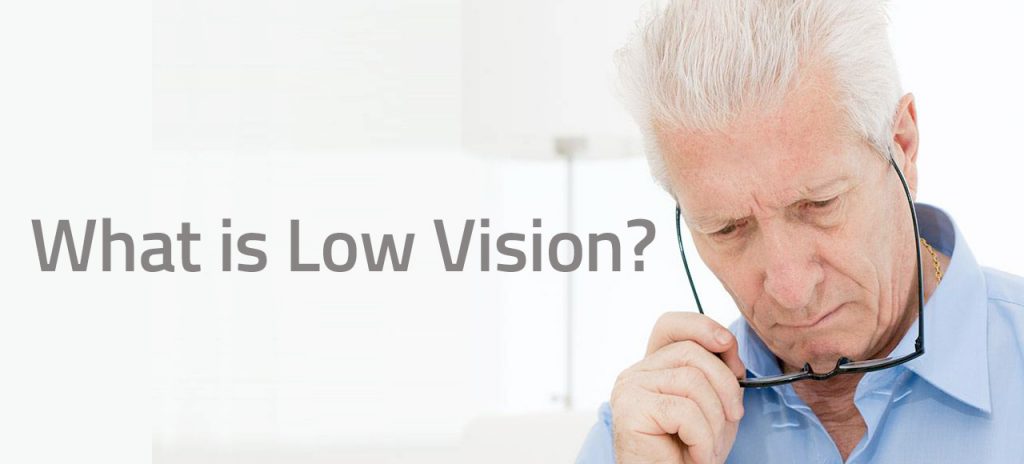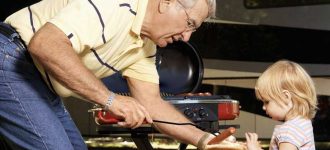Low Vision Specialists, in Manasquan, NJ
We Focus on Helping Patients with Visual Impairments
Low Vision
Sometimes significant vision impairment results from serious eye disease or an injury. This type of vision loss, is characterized often by either reduced visual acuity (to 20/70 or worse) or a reduced field of view, can’t be fully corrected with glasses, contact lenses, medication or surgery.
At times Low vision can affect children and adults, but it is more common in the elderly, who are at greater risk of eye diseases such as glaucoma, macular degeneration and cataracts, which are some of the most common causes of the condition.
Patients with low vision may have complete central or peripheral vision loss, blurry vision, poor low-light vision, loss of light sensitivity and/or loss of contrast, making daily activities such as writing, watching TV, driving or reading difficult or impossible. Since the vision loss can’t be corrected, low vision requires significant adjustments to daily life and the help of techniques and specialized low vision aids to help you maximize your remaining vision to increase independence and quality of life.
Dr Richman
Dr Richman made me feel comfortable and gave me a thorough assessment of my problem. He came up with a treatment plan and I was impressed with the time he spent with me.
-Albert R. Manasquan, NJ 2017
![]()
Great Experience!
Excellent Dr. My daughter had great experience at this clinic. I’m happy with the patience they had for my daughter and made me and her feel happy that they care so much for their patient.
-Arturo C. Manasquan, NJ 2017
![]()

Causes of Low Vision
- Eye diseases such as: glaucoma, macular degeneration, cataracts, diabetic retinopathy, and retinitis pigmentosa
- Eye injury or brain injury
- Heredity
Low Vision can be caused by a number of disorders. If you have Macular Degeneration (Wet or Dry), Diabetic Retinopathy, Retinitis Pigmentosa, Glaucoma, Albinism or Juvenile Macular Degeneration (Stargardt’s Disease), we will examine your ocular tissues thoroughly. Early detection of any changes is critical for managing eye disease and preventing vision loss. With superior accuracy, the trained doctors at Shore Family Eyecare will examine your eyes to monitor the status and development of your ocular condition.
If you have been told by your eye care professional that your vision cannot be fully corrected by ordinary prescription lenses, medical treatment, or surgery, and you still have some usable vision, you have what is called “low vision.” Don’t confuse this condition with blindness. People with low vision still have useful vision that can often be improved with visual devices. Whether your visual impairment is mild or severe, low vision generally means that your vision does not meet your needs. Using visual devices to improve your vision usually begins after your Shore Family Eyecare doctor has completed medical or surgical treatment or determined that such treatments will not improve your vision.
More About Low Vision

Having Trouble Driving at Night?
Driving with Bioptics for Low VisionThe doctors of Shore Family Eyecare acknowledge that driving is not a right but a privilege and find Issues related to public safety are of primary concern. However, access to driving privileges should not categorically be denied to individuals with reduced visual acuity. Driving privileges should be allowed for individuals with adequate residual vision and cognition, who demonstrate the abilities to be a qualified, competent driver.

Macular Degeneration and Low Vision
Macular degeneration (or age-related macular degeneration, abbreviated AMD) is one of the leading causes of vision loss in America. The disease affects the retina, the layer of tissue at the back of the eye that re. This layer has photo-receptors that are stimulated by light and send signals to your brain, thereby generating vision. Specifically, AMD affects the central part of the retina called the macula and this is the portion of your eye that is used in primary visual activities that require the finest…

Five Most Common Low Vision Devices
1. Lamps/Lighting
2. Low vision reading glasses
3. Handheld or stand magnifiers
4. Video camera magnifiers
5. Telescopes
Never rush to buy an expensive device for yourself or a family member without doing some checking first. Finding the right low vision device is a very individual choice, depending on specific vision loss and needs. Find more about information and costs associated with these devices…
For more information, call our office in Manasquan, NJ (732) 719-3307.
Manasquan, NJ 08736